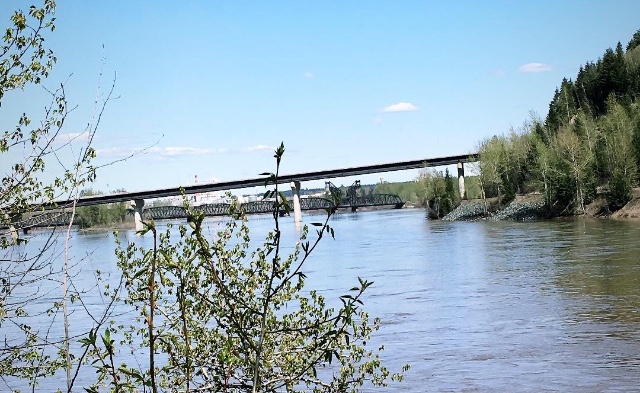The BC River Forecast Centre has released their latest snowpack numbers.
On May 1st, there was 140% of the regular snowpack in the Upper Fraser West basin, 125% in the Upper Fraser East Basin, and 104% in the Nechako basin.
“It’s a pretty significant change from April 1st, and the prime reason is that temperatures were just well below normal throughout most of the province for April,” said BC River Forecast Centre Hydrologist, Jonathan Boyd.
“It’s a little bit of an asterisk in the Upper Fraser West region just because there are fewer being monitored at lower elevations, so the big swing isn’t necessarily that there’s a dramatic amount of extra snow, it’s more just a measure of the fact the snow hasn’t melted as quickly as normally as it does at this time of year.”
Boyd added that some of the recent rainfall has attributed to increased flow in some rivers in the area.
“The Salmon River in particular is one that has been flowing at a reasonable level, right at the threshold of a high streamflow advisory,” Boyd explained.
“We don’t consider it to likely have too much more snow to melt, so it would likely need another rainstorm, or something similar to what we might have experienced late last week, to push flows up a bit more.”
“For other parts, getting into the Robson Valley and McGregor River, there’s still a long way to go. We sometimes don’t get into peak flows until mid-to-late June or even potentially into early-July for those regions.”
For the Vanderhoof area, Boyd says there is potential for high flows, but it is unlikely.
“With respect to just the snowpack still isn’t anywhere near as high in that region as it was four years ago in 2018,” Boyd said.
“The risk would have to be to have a sudden heatwave for maybe five to seven days, followed directly by a heavy rainfall to push things into concerning levels, but of course it’s an ‘if’ and at the current moment in time, the weather models, and speaking with meteorologists, there isn’t really any signs of an extended heatwave.”
Boyd said the trend over the past five years has been hot weather in the spring, which we haven’t received yet.
“My concern is ‘when is it going to switch?’, and it’s something we monitor and check on, and we run our hydrological models to see those impacts as the weather forecasts change.”
Something going on in the Prince George area you think people should know about?
Send us a news tip by emailing [email protected].






